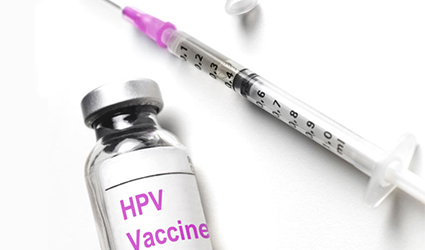Effectiveness of HPV Vaccination in Women Under 20
August 9, 2018
Source: ScienceDaily
 1,060
1,060

A research team in the US confirmed the effectiveness of three doses of quadrivalent human papillomavirus (HPV) vaccine among women aged 20 years and younger, however, more research is needed for women aged between 21-26 years. For women aged 14 - 20 years, catch-up HPV vaccinations were offered if they miss the dose at the age of 11-12 years. The results were published in The Lancet Child & Adolescent Health journal.
The strongest protection against CIN2+ and CIN3+ was identified among women who had received three vaccine doses and had received their first dose between the age group 14 - 17 years, or 18 - 20 years. At the same time, no significant protection was found in women who received their first dose aged 21 years or older, or whoever had received less than the full three doses in the series.
Michael J. Silverberg, the lead author and a research scientist with Kaiser Permanente Northern California's Division of Research, Oakland (USA) said, "In comparison to other countries, HPV vaccine uptake in the US has been relatively low. Our findings show that girls and women who did not receive the full vaccine series at age 11-12 can still benefit from significant protection if they receive the full three doses of vaccine by the age of 20. The evidence suggests that protection is strongest the earlier the vaccine is initiated, and after the age of 21, the evidence of effectiveness is unclear. Further research in other settings, and using the recently introduced nonavalent vaccine, will now be needed to assess the effectiveness of vaccinating women aged 21-26 years."
By DduRead more on
- Things to Know before Buying Newborn Baby Incubators March 31, 2022
- How are Vaccines Stored? December 6, 2020
- Why do Vaccines need to be Refrigerated? December 5, 2020
- BioNTech & InstaDeep launch AI innovation lab for next-generation vaccines and biopharmaceuticals November 28, 2020
- Moderna coronavirus vaccine shows ‘promising’ safety and immune response results in published Phase 1 study, but more research is needed July 15, 2020
your submission has already been received.
OK
Subscribe
Please enter a valid Email address!
Submit
The most relevant industry news & insight will be sent to you every two weeks.



